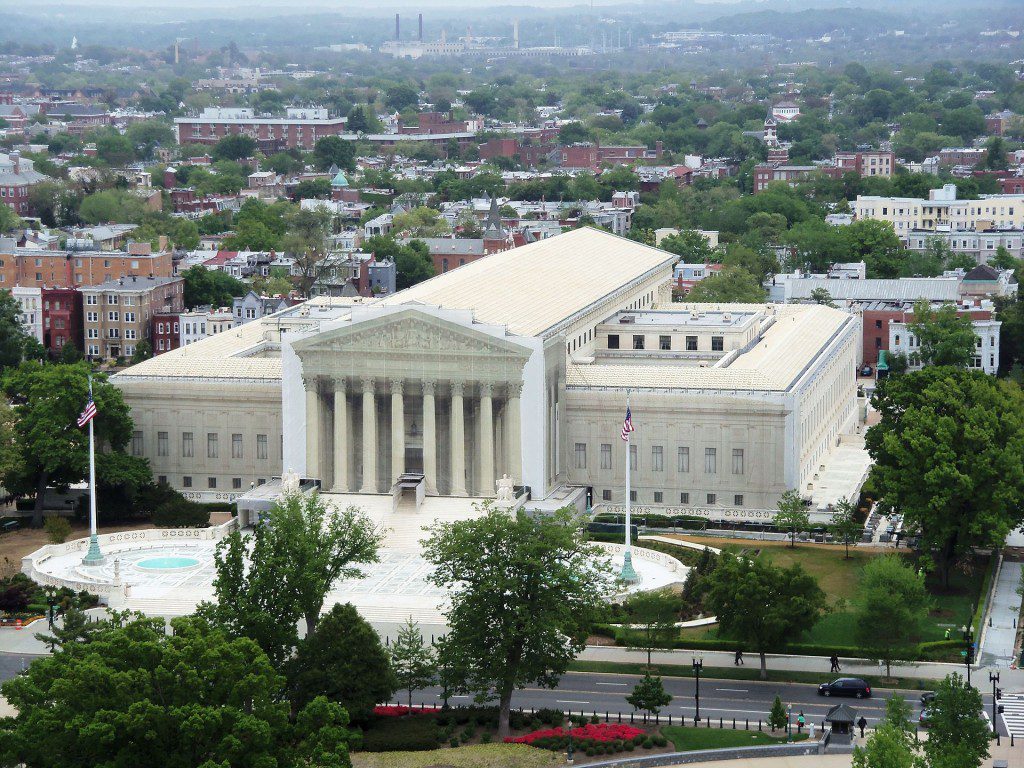
I was pleased, yesterday, to find in my office mailbox an official printed copy of the Brief of Scholars of Mormon History & Law as Amici Curiae in Support of Neither Party that has been filed with the Supreme Court of the United States in the conjoined cases of “Donald J. Trump, et al., Petitioners, v. International Refugee Assistance Project, et al., Respondents” and “Donald J. Trump, et al., Petitioners, v. Hawaii, et al., Respondents.”
I’m one of the twenty-one signatories to the brief, which can be read here:
http://www.scotusblog.com/wp-content/uploads/2017/08/16-1436-16-1540-ac-Mormon-History.pdf
Whatever one’s position on the so-called “Muslim travel ban” proposed by the Trump administration, the brief provides what I think many will find an interesting (and perhaps rather unfamiliar) glimpse into the history of the Latter-day Saints.
The list of signatories to the brief can be found on pages 1-4 of the document, at the same link.
***
Is there any reason to be concerned about freedom of speech and religious liberty in the modern United States of America?
Absolutely there is.
Consider this item, for example:
“Survey: Only 39 Percent of College Students Know That Hate Speech Is Protected Speech”
And this:
“Monroe mosque vandalized; ‘Maybe the person who did this just doesn’t understand Islam’”
And, just in case you haven’t already seen it, there’s this 2.5-minute video:
“Yale Students Sign Petition to Repeal the First Amendment”
***
I posted several items earlier this morning to illustrate the evils of Mormonism. Here are a few more:
“LDS volunteers provide ‘helping hands’ for Florida neighbors in need”
“Apostles spend weekend with flood cleanup volunteers”
“‘Unmasking Mormonism’ in Texas and Florida”
Maybe they should have kept us out of the United States.
Before we’re given the boot, though, perhaps we can do some additional harm:
***
When Brigham Young received word of the plight of some of the handcart pioneers, he stood up during General Conference at Salt Lake City on 5 October 1856 — it was a Sunday — and addressed the assembled Latter-day Saints:
“Many of our brethren and sisters are on the plains with handcarts, and probably many are now seven hundred miles from this place, and they must be brought here, we must send assistance to them. . . .
“I shall call upon the Bishops this day. I shall not wait until tomorrow, nor until the next day, for 60 good mule teams and 12 or 15 wagons. I do not want to send oxen. I want good horses and mules. They are in this Territory, and we must have them. Also 12 tons of flour and 40 good teamsters, besides those that drive the teams. . . . First, 40 good young men who know how to drive teams, to take charge of the teams that are now managed by men, women and children who know nothing about driving them. Second, 60 or 65 good spans of mules, or horses, with harness, whipple trees, neck-yokes, stretchers, lead chains, &c. And thirdly, 24 thousand pounds of flour, which we have on hand. . . .
“I will tell you all that your faith, religion, and profession of religion, will never save one soul of you in the Celestial Kingdom of our God, unless you carry out just such principles as I am now teaching you. Go and bring in those people now on the plains.And attend strictly to those things which we call temporal, or temporal duties. Otherwise, your faith will be in vain. The preaching you have heard will be in vain to you, and you will sink to Hell, unless you attend to the things we tell you.”
As quoted in LeRoy R. Hafen and Ann W. Hafen, Handcarts to Zion (1960), 120-121.
***
Finally, I completely agree that Mormonism as a distinctly and distinctively unique form of Christian humanism:










